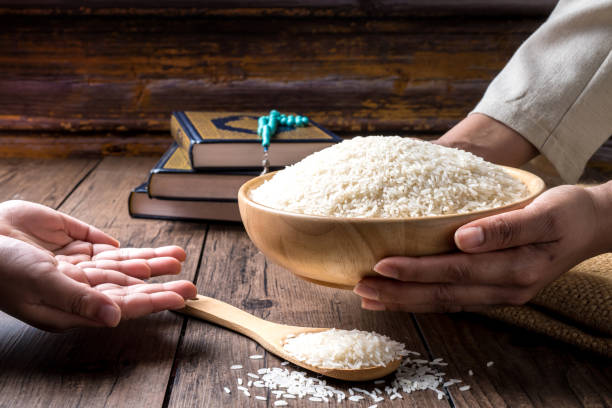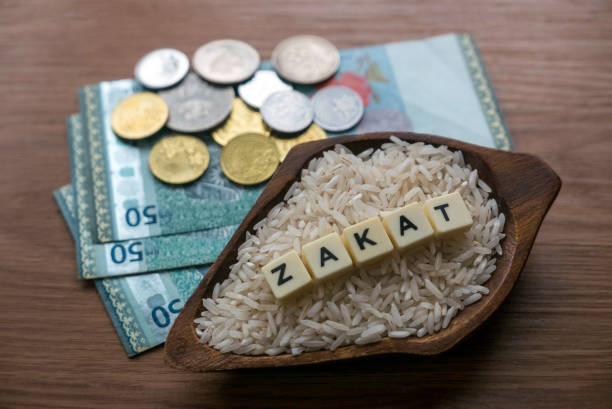Zakat al-Fitr, an essential pillar of Islamic charity, holds profound significance in the UAE. As the holy month of Ramadan nears its end, this act of giving embodies the spirit of compassion, unity, and gratitude. Rooted in centuries-old traditions, Zakat al-Fitr serves as one of the means to purify one’s fast, ensuring that every member of the community, regardless of their financial standing, can partake in the joyous celebrations of Eid. This tradition of giving is deeply valued, making it a significant part of the culture in the UAE.
The Essence of Zakat al-Fitr
Unlike Zakat, which is an annual obligation, Zakat al-Fitr is a unique form of charity that is obligatory for every Muslim who has the financial means. It is typically distributed in the form of staple food items such as rice, wheat, or dates, enabling those in need to celebrate Eid with dignity. In the UAE, many charitable organisations facilitate the process by collecting and distributing Zakat al-Fitr to individuals and families, ensuring that no one is left behind during this blessed time.

Source:- istockphoto.com
Why is Zakat al-Fitr Important?
Zakat al-Fitr is not just an act of generosity; it is an obligation that carries deep spiritual and social significance. It serves three fundamental purposes:
- Purification of the Soul: By offering Zakat al-Fitr, Muslims cleanse their Ramadan fasts from any shortcomings or lapses that may have occurred during the holy month.
- Fostering Community Spirit: It strengthens bonds within society, ensuring that the less fortunate are included in the Eid celebrations.
- Providing for the Needy: Zakat al-Fitr ensures that every individual, regardless of financial status, has access to food and essentials for Eid festivities.
How is Zakat al-Fitr Given in the UAE?
The UAE is known for its commitment to philanthropy, and Zakat al-Fitr is an integral part of this culture of giving. Muslims in the UAE can pay their Zakat al-Fitr in various ways:
- Mosques and Islamic Centers: Many mosques across the country collect Zakat al-Fitr in the form of money or food items, which are then distributed among the needy.
- Charitable Organisations: Renowned organisations such as the Emirates Red Crescent and Dubai Charity Association streamline the process, allowing people to make their contributions online or at designated collection points.
- Online Platforms: With technological advancements, paying Zakat al-Fitr has become easier than ever. Several platforms enable residents to fulfil their obligation with just a few clicks, ensuring timely distribution before Eid prayers.

Source:- istockphoto.com
The Ideal Time to Pay Zakat al-Fitr
Zakat al-Fitr should be given before the Eid prayer ensuring that it reaches those in need in time for the festivities. It is typically paid in the last days of Ramadan, reinforcing the essence of timely charity. Delaying it beyond the Eid prayer is considered inappropriate, as the primary purpose is to allow the recipients to enjoy the celebration without financial concerns.
The Impact of Zakat al-Fitr on Society
In the UAE, where generosity is deeply ingrained in the culture, Zakat al-Fitr plays a vital role in fostering social harmony. It bridges the gap between different economic groups, reinforcing the values of kindness and compassion. Additionally, it contributes to nationwide efforts in eradicating poverty, ensuring that everyone has access to necessities.
Many people in the UAE also take this opportunity to give Ramadan gifts to their loved ones, strengthening bonds and spreading the spirit of generosity. From traditional offerings to modern hampers, the act of giving extends beyond Zakat al-Fitr, making Ramadan a season of kindness and warmth.
Thoughtful Giving: Iftar Gift Baskets
Another meaningful way to celebrate the season of giving is by giving presents like iftar gift basket to family, friends, or those in need. These baskets, filled with dates, sweets, juices, and other essentials, provide a delightful way to share blessings and enhance the communal aspect of Ramadan.
The tradition of Zakat al-Fitr in the UAE is a testament to the nation’s commitment to philanthropy and social responsibility. It reflects the true essence of Ramadan; compassion, selflessness, and gratitude. By embracing this noble obligation, Muslims ensure that the joy of Eid is shared by all, reinforcing the values of giving and togetherness. Whether through mosques, charitable organisations, or digital platforms, the act of giving remains a beautiful and indispensable part of the Islamic faith, strengthening the bonds of humanity year after year.
So, Zakat al-Fitr in UAE is more than just a religious obligation; it is a cherished practice that embodies the country’s values of kindness and social responsibility. Those looking to make a meaningful impact can explore various ways to contribute, ensuring their charity reaches those in need in a timely and effective manner.






